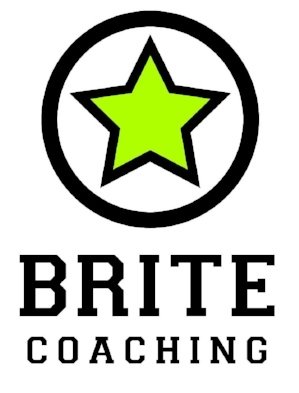This is day three of my writing short (ok moderate) posts of some random yet important topics that role through my head.
If you didn’t get Day 1 and Day 2 and would like to, I can forward to you or check my website www.brite.coach
All will be posted there.
Since many of you have races or events coming up, I will spend another week reminding you and hopefully educating you on some nuances of endurance training.
Like Sleep (Monday) and SmartPhones (Tuesday), the topics will hopefully surprise and enlighten you.
Today is about effort and our nature to go hard.
Most days, as an endurance coach, are spent asking athletes to ride smooth, minimize surges and use gears to flatten hilly roads. Whether a roadie, mountain biker, triathlete, runner, doesn’t matter…if you are an endurance athlete and 96.9% of your goal events are based on the development of your aerobic system and optimizing sustainable power, then maximizing your ability to hold a steady output is the skill we are after.
Developing outstanding endurance is the starting point and with that comes exceptional aerobic economy (which I have written about this past winter). If all your training is interval-based V02Max or Threshold efforts in place of aerobic base training, we are neither training endurance or economy. We are just getting tired. Now, that’s not to say you should never ride hard and do intervals. There is certainly a time, place and appropriateness for hard work (athlete dependent and training phase related) - blending aerobic development and intensity into an athletes training program is both an art and a science (and highly individual). For criterium riders, roadies, mountain bikers and even some triathletes/runners, you need the ability to change pace, recover and go again and maybe again and maybe again. A crit race often demands a rider to “accelerate” through corners 160+ times in the span of an hour! Intensity for these folks is critical! But they back it up with a ton of endurance work!
In long endurance races or multi-day stage events, success to the finish (aka: a strong finish) will only come from careful pacing and steady output. In cycling terms, every time we exceed our aerobic threshold we burn a match. Once the matchbook is all used up, we will have no fire in our legs for the later stages of the race, the run off the bike or the days following in a multi-day stage race. I find it most fascinating that despite many athletes knowing about this concept, they choose to ignore the consequences of it. Until they have buried themselves in a race, a training ride, or walked an entire Ironman marathon, the impact of burning matches or exceeding their aerobic threshold multiple times in dramatic fashion, the levity of this concept is lost on them. Some athletes learn the first time but more often than not it takes a few good reminders.
This line of thinking and dialoguing with athletes led me to ask myself what is it about athletes/humans always pushing beyond what is sustainable?
Self sabotaging their rides or training days but going out so hard? Surely ego is involved but there is something more natural and innocently naive about this behaviour.
I read a great thread that magnified our very nature.
It went like this…
Why we go to hard is because our very evolution (to standing on two feet) has ingrained a certain ‘resistance reflex’ into us. Try this -- stand facing a person. Ask them to hold up their two hands to you. Place yours against them and then gently apply increasing pressure. They will push back with the same pressure. This is reflexive. That's why our natural instinct is to go harder up a hill, into the wind, surge to the front, etc. Part of ultra endurance training is unlearning that reflex — to keep constant effort rather than constant speed.
Pacing yourself steadily and evenly, in ultra endurance, will pull back anyone and everyone that went out too hard. Be a champion at the end, not in the first 1/4.
And, if you don’t reel in others you thought went out too hard, then they were in fact faster/stronger than you. So move on.
